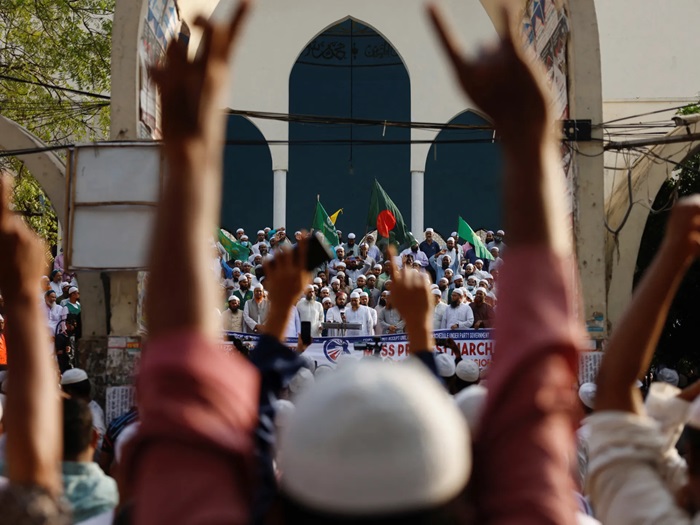
The design is as clear as daylight. The Bangladesh Nationalist Party (BNP) and its ally hardline Islamist forces want to sabotage the Parliamentary democracy in Bangladesh. They are not participating in the general election scheduled on January 7 and are instead resorting to large-scale violence. The aim is to dissuade voters from exercising their franchise and assume power through the backdoor. Boycotting elections and resorting to violence is an old and preferred twin tactic of the BNP. They adopted this path during the 2014 election as well but without much success. The history may repeat itself in 2024.
At a time when the country’s Election Commission (EC) is taking every measure to ensure a free and fair election, and the Sheikh Hasina-led Awami League government is extending full support to the EC; the BNP-led opposition is busy disrupting life in Dhaka and elsewhere in the country. From setting trains and buses on fire to killing of Awami League activists and policepersons – Bangladesh was rocked by incessant and unending violence over the last few weeks.
With the election less than two weeks away, the country is witnessing 8 to 10 incidents of violence on average, every day. As the law-and-order machinery got tough on the political parties who not participating in the election and resorting to violence, BNP mobilised its frontal organisations to spearhead the protests and give it a shape of public outrage. A total of 29 parties and over 1000 candidates will join the forthcoming election as against the BNP-led front of 15 parties who had boycotted the polls. A section of Bangladesh’s highly fragmented and electorally irrelevant Left has been supporting the BNP.
The violence is accompanied by unrelenting provocations and rumour peddling to keep voters indoors on the day of the polling. To prevent any such eventuality and ensure peace, the Election Commission has decided to handover the law-and-order responsibilities to the Bangladesh Army from December 29 – that is a clear 10 days ahead of the polls. The Chief Election Commissioner warned all concerned that any violation of the code of conduct would be dealt with seriously.
There is a wider design behind the BNP’s attempt to keep the voter turnout low. First, it will help the opposition claim a moral victory and question the validity of the election. But more critically, it will help create a case for the army to step in. Unlike the Awami League which carries the legacy of the people’s movement; Bangladesh Nationalist Party was born in the army barracks. It was founded by the Military dictator Ziaur Rahman. BNP hopes that the army will eventually pass on the power to them. The Army used to play a deciding role in Bangladesh until 2013 when the Supreme Court scrapped the provision of the caretaker government.
The provision allowed the military to assume power through the backdoor. The caretaker governments were supposed to conduct elections within 90 days. In reality, they enjoyed power – with some retired judges or officials at the front – for as long as they wanted. The last caretaker government spent two years in office. Military gains when the political system is weak. So, the military kept it weak. Till 2014, the caretaker governments never allowed any political party to stay in power for two consecutive terms. Elections were scams. They also ensured that the parties were divided by a wall of distrust, which would always keep the door open for interventions by the armed forces.
BNP boycotted the ensuing election demanding the return of the caretaker government. They don’t trust an elected government to preside over the job. The demand is not only unconstitutional but also, ridiculous. From India to the UK or the USA; an elected government passes the baton to the next elected government. That’s the norm of electoral democracy. Except in emergencies or during any constitutional crisis, unelected governments are never allowed to assume power in any large democracy.
But the BNP is not here to debate democracy. That’s an alibi they use to suit their purposes. They have a proven history of playing with fire and, this time is no different. They participated in the 2018 election and were faced with a crushing defeat. They want to avoid another drubbing at any cost. But they also want power, even if it comes to them unconstitutionally. And, once in power, they do not care for the constitution or democracy.
BNP was in power for two terms (1991-96 and 2001-2006). Both the terms were synonymous with the rule of fear. Bomb blasts, grenade attacks, torching of public properties, and state-sponsored atrocities became an everyday affair. Their hardline Islamist friends were accused of exporting terror to India to serve the interests of Pakistan. BNP is now using the same arsenal to intimidate the administration and the voters. They should have remembered that Hasina is not a soft target. She will resist this ploy. (Singapore Post)
